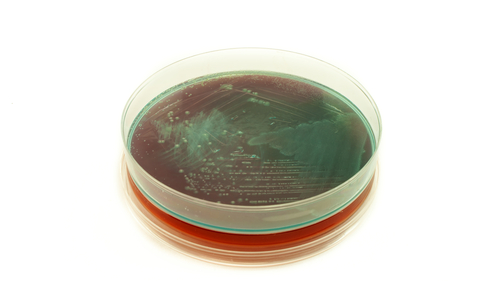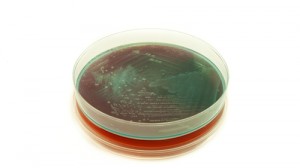CF Community Takes Notice of New Antimicrobial Biofilm That Fights Psuedomonas Aeruginosa
Written by |

Promising data of an anti-infective therapeutic to treat Cystic Fibrosis-associated lung infections was presented in the 28th Annual North American Cystic Fibrosis Conference, held last week in Atlanta, GA, by N8 Respiratory, LLC. showing the efficacy of its lead compound CSA-13 as an antimicrobial peptide against Pseudomonas aeruginosa, a common persistent pulmonary infection associated with cystic fibrosis.
N8 Respiratory, LLC, a subsidiary of N8 Medical, Inc. based in Columbus, OH, is a private company focused on the development of ceragenins, also known as cationic steroidal antimicrobials or “CSAs,” which are synthetic, non-peptide small molecules with a broad-spectrum activity that mimic the endogenous host defense or antimicrobial peptides. However, ceragenins are not peptides but synthetic small molecules that can be manufactured in large scale and do not suffer proteolytic degradation. They are promising anti-infective therapies for the treatment of infections in chronic cystic fibrosis patients.
In this preclinical study, the researchers measured the efficacy and the minimum inhibitory concentration (MIC) of CSA-13 and tobramycin, the most common antibiotic for pulmonary P. aeruginosa infections, using a tobramycin-susceptible and resistant strains of P. Aeruginosa, and in combination with sputum of cystic fibrosis patients to determine the impact of biofilm on each treatment. The results showed that the MIC of CSA-13 (1.6-3.2 ug/ml) did not change in the presence of sputum from CF patients, while the MIC of tobramycin increased significantly (from 0.8 ug/ml to >64 mg/ml) in the presence of sputum from CF patients. CSA-13’s MIC also remained unchanged when tested in a tobramycin-susceptible or a resistant strain (AGR 2). This demonstrates that CSA-13 is efficacious against drug-resistant strains of bacteria and bacterial biofilms.
[adrotate group=”1″]
“This is an encouraging study, as it demonstrates the ability of CSA-13 to remain effective even in the presence of sputum from a cystic fibrosis patient,” said Paul B. Savage, MD, Department of Chemistry and Biochemistry, Brigham Young University in the N8 respiratory press release. “Further, it confirms previous findings that the compound may continue to be effective even in antibiotic-resistant strains of P. Aeruginosa,” added Dr. Savage.
“This preclinical study is promising on a number of fronts,” said Dr. Michael Triplett, CEO of N8 Respiratory. “While it demonstrates the efficacy of our compound, CSA-13 in an extremely challenging more real-world like context, it also presents N8 with the opportunity to present real solutions to the medical community and CF patients,” concluded Dr. Triplett.







